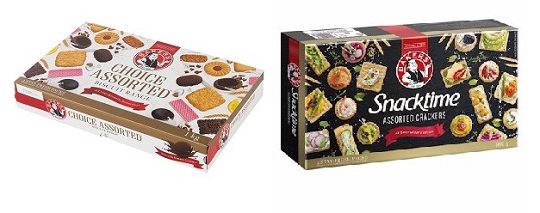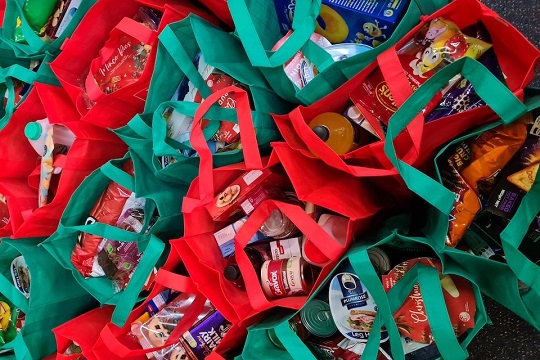There are all sorts of horror stories of people diligently paying money over to the ‘Hamper Aunty’ throughout the year. Come December, they are given the run-around. The Hamper Aunty has an elaborate excuse for why they cannot make good on their clients’ investments or they simply just disappear off the face of the planet. The amounts often run into the Thousands of Lost Rands Per Client.
Christmas Hampers are theoretically a great idea, but there are so many scams that many people are now deciding to simply steer clear. Still others who have already burnt their fingers will at some point again join a hamper scheme.
We aren’t saying people should or shouldn’t participate in Hamper schemes, but like any other investment, Chrismas Hampers are an Investment that carries a risk. People need to make sure that they are investing wisely.
What type of Hamper are you investing in and what is the difference between a Hamper Business, Hamper Club or Stokvel and Shopping Stamps?
Hamper Business vs Hamper Club vs Shopping Stamps
There are two types of hamper schemes; one is a Hamper Business and the other is a Hamper Club. Some people running a hamper business often call it a “hamper club”.
If they are running it with the aim of making a profit, then it is not a club. They are running a business.
The Hamper Business is either run as a Registered Formal Business or it is run as an Informal Business by an individual, often referred to as ‘The Hamper Aunty’ (or in some cases Hamper Uncle). In both cases their main aim is to make a profit for the individual owner or for the company and for either to call it a “hamper club” is misleading.

The Formal Hamper Business
Of course hamper schemes run by longstanding formal businesses are fairly more reliable although there are cases where their agents have committed fraud and never paid in their clients’ money. In those cases, if the client has valid receipts, legally the business still has to honour the client’s hampers and they will have to go after the agent for their money.
Up until a few decades ago, there were many large hamper companies that even had glossy catalogues for the different hampers you could order and they would have agents to collect the money weekly or monthly. The few of the big ones who are left have moved most of their business to online platforms.
Even with a large formal hamper business there are risks. An event outside of their control, like for example a major disaster at their premises, could see you lose your money, but that risk is minimal.
The Informal Hamper Business
These are the Hamper Aunties (and Uncles) and though there are no formal statistics, we would like to believe that there are still many honest people running informal hamper businesses.
The sad reality is that among the Hamper Aunties is where you will find many fly-by-night scammers, even if those scammers are probably a small minority.
It however for many of them remains an honest way to make a profit and secure affordable pantry stock for their clients, and themselves, as they most likely do not have permanent employment.
The real Honest Hamper Aunties are in fact an asset to our communities as they have created employment for themselves and are thus contributing to the local economy and the savings they give their clients often make life better for those who cannot afford the huge once-off expenses in December.
Maybe we just need to be more careful who we give our heard-earned money to.
The Hamper Club is Equivalent to a Stokvel
The club is run as a collective and controlled with input from all of its members. If you join a hamper club, it is like joining a social club or sports club, and it can like a social club, even have a stokvel bank account that needs at least two or three elected executive members to sign off on all bank transactions.
Nobody makes a profit and the main aim is to secure substantial savings on food and luxuries for its members.

Shopping Stamps are mostly sold by large supermarket chains and butcheries, and the stamp is often sold for slightly less than their ‘Face Value’. Some retailers also allow agents to resell their stamps.
These are particularly great for perishable items that hamper schemes cannot buy a few months in advance.
The biggest risk with shopping stamps is that they can be lost or be stolen, so you need to keep them safe.
How to Know If a Hamper Scheme is a Scam
There are probably way more trustworthy and reliable Hamper Entrepreneurs than there are Skelm Hamper Aunties.
Everyone we spoke to either wanted to remain anonymous or we’ve decided to keep them anonymous as we do not want to be perceived as punting a specific Hamper Business.
How do you know if a hamper scheme is a scam?
A Hamper Uncle who is known to have been in the business for a long time says that if your hamper business does not stock up on non-perishables throughout the year and does not have a secure premises like a lockable store room, then you are in the wrong business.
“People who manage a successful hamper business buy in bulk throughout the year when they can find specific items at their cheapest. They don’t wait until December to buy their stock because that is when everything is more expensive.”
“If the person you are buying hampers from doesn’t seem to be buying stock throughout the year, or does not have smaller hampers availabe during te year, then you could have a problem.”

A customer of another hamper business says that before people start putting money into hampers, they should do their homework and find out if the Hamper Aunty is reliable.
“It’s December so if you want to get hampers next year, find out from people who actually received their hampers this year. Ask them if they are happy with their Hamper Aunty and if they will buy from the same person next year.”
A former Capetonian living in Johannesburg says that after moving to Johannesburg she learned that a Hamper Club run as a Grocery Stokvel is a much better option since you can even start one yourself among your friends and family.
“You can have a separate stokvel bank account and you must have monthly meetings with the members to decide what gets purchased and everybody keeps a lookout for good bulk buying deals.”
She says that like any organisations there can be problems but with a stokvel but the risk is lower. There is much more transparency compared to paying your money over to someone who you don’t really know.
From my own personal observations regarding a recent widely reported case of a Hamper Aunty Who Claims All Her Clients’ Money Was Stolen is that anyone dealing strictly in cash should rather be avoided. Whether or not this person is telling the truth is not the issue but at the very least, her dealing with so much cash is a matter of gross negligence.
If your Hamper Aunty refuses to take EFT’s and says they only deal in cash, then it should be a major red flag.
Anybody running a business knows better than to walk around with wads of cash and it is much easier to do bulk buying of hamper goods with card payments.
Having a bank transfer record of your payment to a Hamper Aunty with a reference is of course also a much more secure option than a flimsy hand-written receipt.
Secure Your Hamper Investment
Whether with a formal or informal hamper business, whether a hamper club or stokvel or whether simply buying Shopping Stamps from a large retailer, the idea with Christmas Hampers is that you are making an investment throughout the year so that you have less financial concerns to deal with during December and what for many is often a difficult January.
Christmas Hampers are an Investment. What all investments have in common is that they carry risks.
A good investor takes calculated risks by doing proper research before investing their money.
When signing up for a Hamper, you need to do your research on who you are dealing with.






